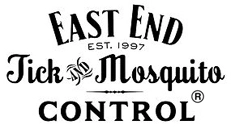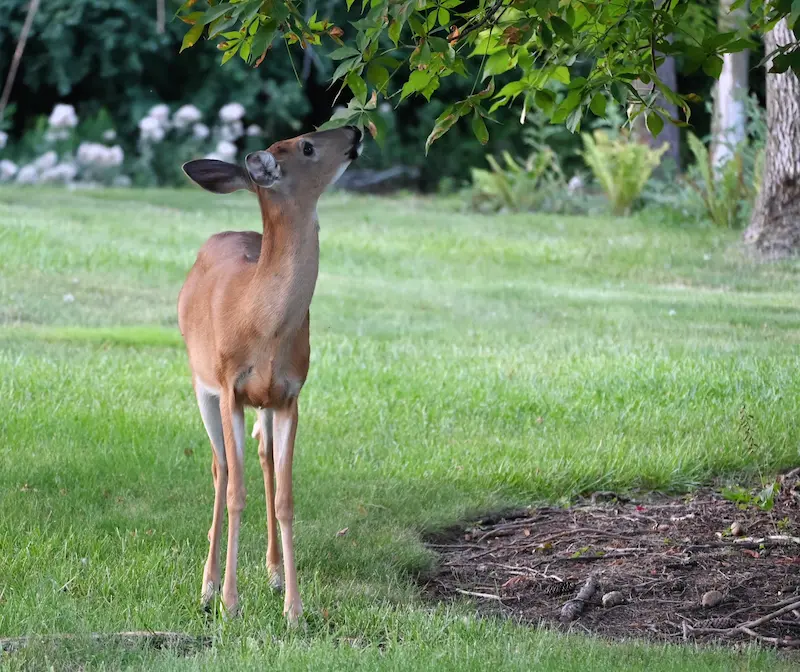Deer and mice are the main carriers that move ticks from one area to another, often spreading them right into your yard. East End Tick & Mosquito Control® provides solutions to reduce tick populations in your lawn and help protect your family from bites. Unfortunately, deer are incredibly difficult to keep out of residential properties, even with fencing or deterrents. That leaves many homeowners wondering what else they can do to reduce the risk.
The Environmental Protection Agency (EPA) has identified a variety of plants that naturally attract deer. If your yard in Southampton has any of these plants, it could be making your property more appealing to deer and, in turn, their hitchhiking ticks.
EPA’s List of Deer-Attractive Plants
These plants may look beautiful, but they can also draw deer closer to your property. When deer visit, they often bring ticks with them, which increases the chances of finding these pests in your lawn.
Knowing which plants encourage deer activity is an important first step in protecting your property and reducing tick problems. Below are some of the plants the EPA identifies as especially attractive to deer:
Annuals and Perennials Grown as Annuals
- Impatiens (Impatiens)
- Sunflower (Helianthus)
- English Daisy (Bellis)
- Dahlia (Dahlia)
- Fibrous Begonia (Begonia)
Bulbs and Corms
- Tulip (Tulipa)
- Daylily (Hemerocallis)
- Lilies (Lilium)
- Spring- Flowering Crocus (Crocus)
Herbaceous Perennials
- Hosta (Hosta)
- Garden Phlox (P. paniculata)
- Hollyhock (Alcea)
- Daisy (Chrysanthenum)
- Black-Eyed Susan (Rudbeckia)
- Jerusalem Artichoke (Helianthus)
- Candytuft (Iberis)
- Shasta Daisy (Leucanthemum)
- Coneflower (Echinacea)
- Cardinal flower (Lobelia)
- Hibiscus (Hibiscus)
- Rose Mallow (Malva)
Shrubs and Trees
- Yew (Taxus)
- Euonymus (Euonymus)
- Arborvitae (Thuja)
- Deciduous azalea (Rhododendron)
- Rhododendron (Rhododendron)
- Evergreen Azalea (Rhododendron)
- Rose (Rosa)
- Hydrangea (Hydrangea)
- American Holly (Ilex)
- Evergreen Holly (Ilex)
- Yucca (Yucca)
- Eastern Red Cedar (Juniperus)
- Juniper (Juniperus)
- Mountain Laurel (Kalmia)
- Hemlock (Tsuga)
Professional Tick Control in Southampton
At East End Tick & Mosquito Control®, we understand how challenging it can be to deal with ticks in Southampton. These pests can quickly spread and make outdoor spaces uncomfortable and unsafe. Our professional exterminators are here to help you protect your home, your yard, and your family from these unwanted guests. Let us provide the solutions you need for lasting relief.
Call East End Tick & Mosquito Control® today for effective tick solutions in your yard and get a free estimate.


